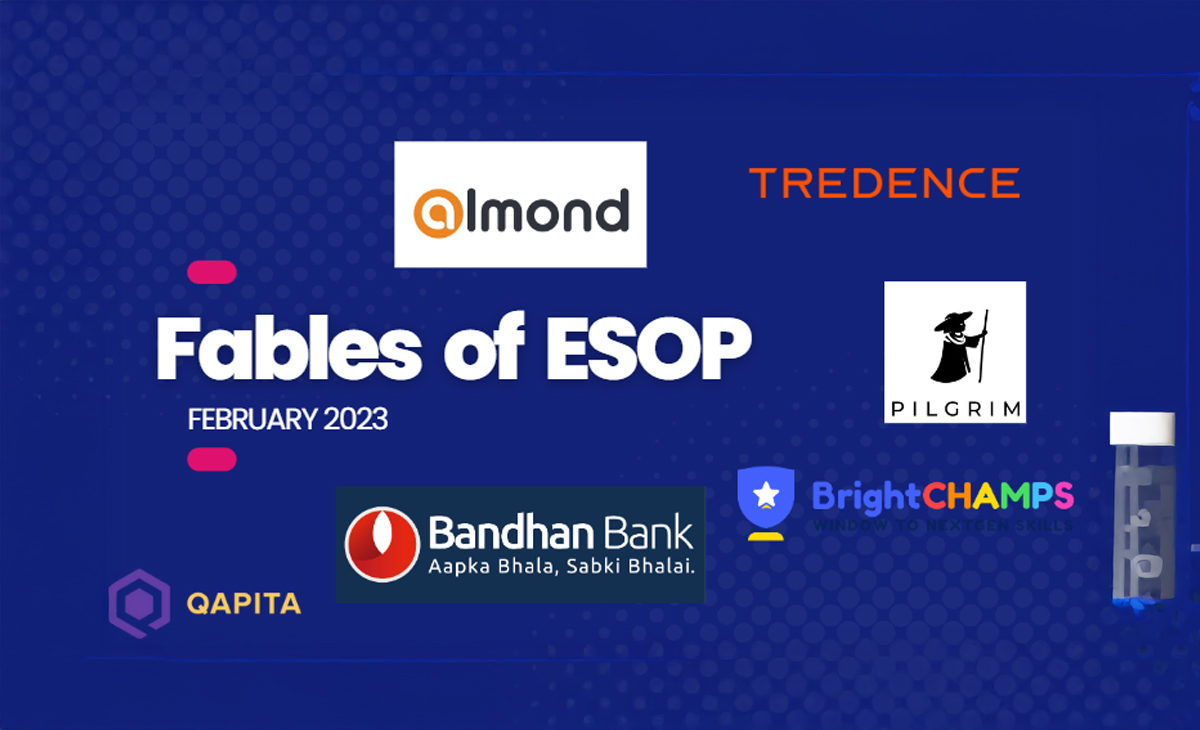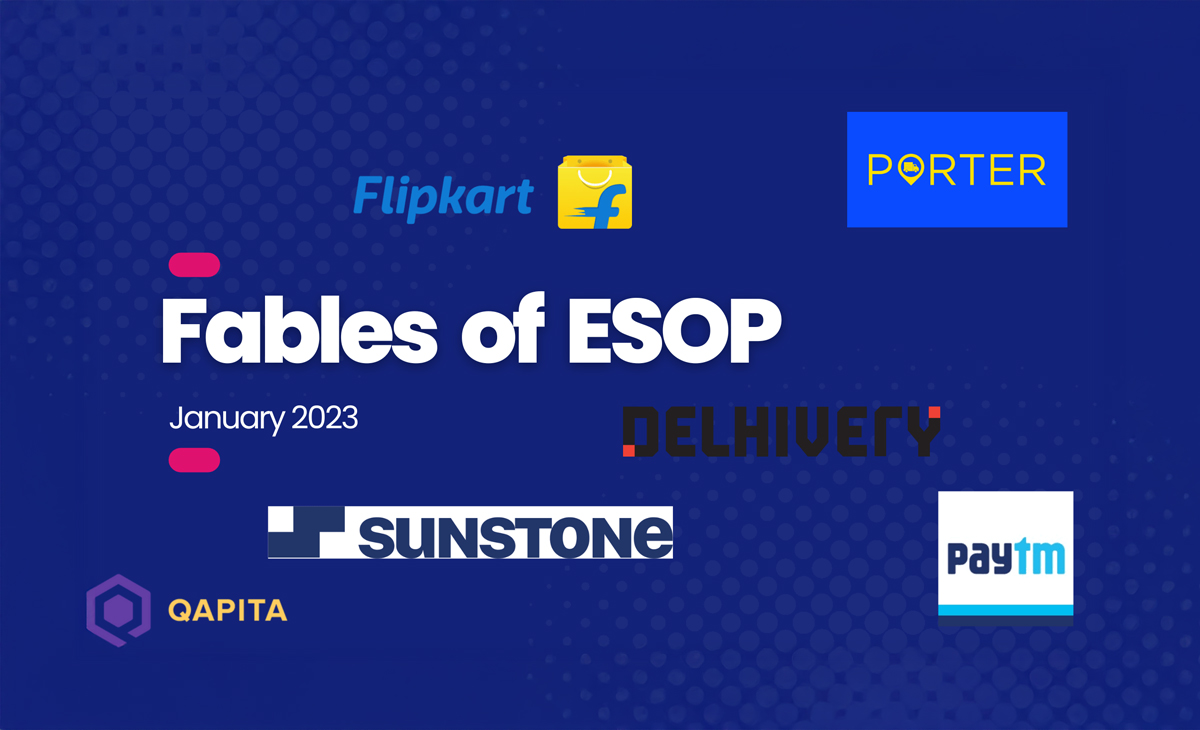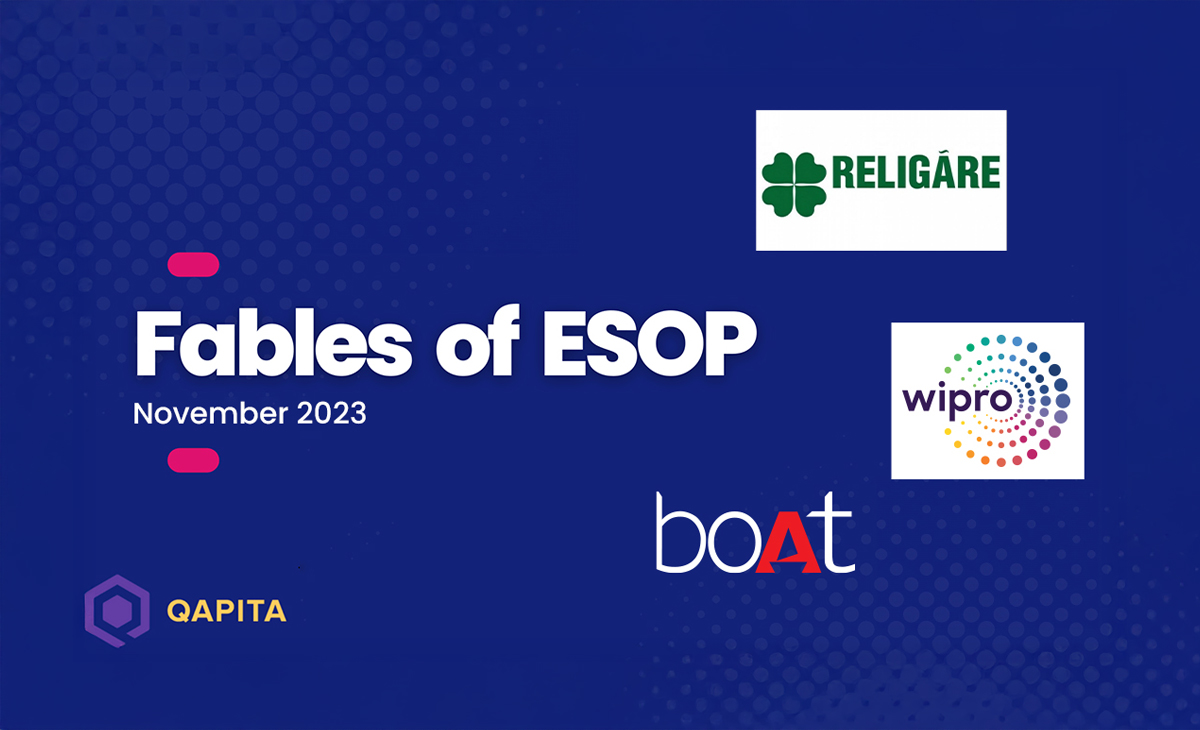Welcome to our latest edition of Fables of ESOPs. While January was a blockbuster start to 2023 with Flipkart announcing the largest ESOP liquidation program in this region worth $700 million. February saw the momentum continue with Tredence's large ESOP buyback program worth $30 million. We also cover SEBI's informal guidance note on definition of employees in response to a query from a company that wishes to offer ESOPs to their gig/contract talent. Let's deep dive into the details.
ESOP Buyback and Scheme Announcements:
Tredence, a firm focused solely on AI and analytics, just announced its largest ESOP buyback program, valued at $30 million. This follows its $175 million Series B fundraising from Advent International last year. The buyback includes around 270 employees globally and gives them an opportunity to liquidate 40% of their vested ESOP units. That's close to INR 90 lakhs worth average value per employee indicating the quantum of value creation for eligible Tredence employees!
D2C personal care brand Pilgrim has announced its first-ever ESOP scheme. According to a statement from IT, 10% of its shares have been set aside for the ESOP pool for all its employees.
This program will be available to about 30 employees who have worked for the company for at least a year. With this statement, Pilgrim hopes to recognize and honor the contributions of the staff members who have over the past 3.5 years driven the brand's growth and generated money.
The Nomination and Remuneration Committee of the Kolkata-headquartered Bandhan Bank granted employee stock options (ESOPs) at a face value of Rs 10 each. At a grant price of Rs 242.10 per option, 40,500 Bandhan Bank shares are available to be offered as stock options to qualified employees.
Almond Solutions, a leading B2B channel engagement and experience company, has announced to gift ESOP options in the form of NFTs as a recognition incentive to their employees.
The business said that it created and released its first NFT collection, dubbed "ALMONDS," for their employees. The NFTs have been given as a gift to support a workplace environment in which workers are appreciated and rewarded for their efforts, eventually developing a devoted workplace environment consistent with Almond's mission to provide cutting-edge technological solutions.
Global online teaching platform BrightCHAMPS rolled out a unique ESOP scheme - TSOPs for 400+ teacher partners from 25 countries. They also look forward to increase coverage to more teachers globally in the coming months. A similar program was also rolled out by Unacademy for their teacher partners last year. Other gig platforms like Urban company too have rolled out long term incentive programs for their gig workers on the platform.
Other Updates
SEBI informal guidance note on the definition of Employees
With the nature of workforce changing in some of the new-age business models, there is a larger requirement of offering long term incentive or equity-based compensation to non-employees as well. While companies have tried to do that using hybrid instruments, traditional ESOPs as an instrument weren't eligible to be offered to non-employees, contract, or gig workers in Indian companies. We have seen several companies offering ESOP like instruments to their gig workers such as Unacademy offering T-SOPs to their teacher partners, Urban Company offering P-SOPs to their partner gig workers among others.
Directionally there seems to be an indication from SEBI in this matter by expanding the definition of employees to doctors who work part time with this company who sought SEBI's response in this matter. However, readers should note that SEBI regulations apply to listed entities and this is also an informal guidance note and not the regulation/law itself. But we hope these developments would nudge the eventual amendment in regulations to reflect the changing times.
What is Adjusted EBITDA or EBITDA before ESOP Costs?
Of-late, many large companies in the unicorn category have been claiming EBITDA profitability by reporting what they call as 'Adjusted EBITDA' or 'EBITDA before ESOP Costs'. What exactly is this?
Well, in the early and growth stages of the company, ESOPs are given out with a deep discounted exercise price as a means to attract talent and demonstrate upfront value to the employees. However, this difference between the market value of the options to the exercise price needs to be recognized as a non-cash expense on the books of the company. For large companies with large ESOP pool value, this expense amount every year can be quite significant and thus impacts the net profits of the startups. A few finance professionals view this as a non-recurring expense and find it important to report the EBITDA numbers separately by not including these non-cash, 'non-recurring' expense and hence the name 'Adjusted EBITDA' or 'EBITDA before ESOP costs'.
While the finance professionals are divided on their subscription to this new financial metric, in any case, it's important to understand it from first principles to be well informed on these matters before taking any dependent decision.
Notwithstanding which side of the opinion you are on, there is no ambiguity that companies need to recognize ESOP expenses every year as per the respective accounting standards. For this you need the fair value of options/ESOPs done for your outstanding ESOP grants. Do reachout to us (info@qapitacorp.com) if you need support with this or if you have any questions on ESOP accounting.
-Srikanth Prabhu (srikanth@qapita.com)


 ESOP Management
ESOP Management

 Liquidity Solutions
Liquidity Solutions

 ESOP Consulting
ESOP Consulting

 Fund Management
Fund Management












































